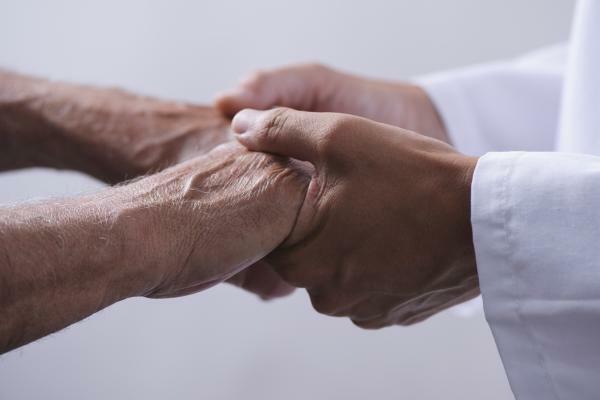
The psychology of aging is a field of study that has received, in recent years, great attention from specialized operators, doctors, psychologists, biologists; as well as people affected by social changes due to the progressive aging of the population.
Today, psychogerontology is an occasion for meeting, a kind of workshop in which to study the phenomenology of aging, modern evaluation systems, interpretation models and intervention strategies psychotherapeutic. In this Psychology-Online article we will see, therefore, what is psychogerontology, its characteristics and its functions.
Index
- What is psychogerontology
- Characteristics of psychogerontology
- Importance of psychogerontology
- Functions of psychogerontology
What is psychogerontology.
We all agree that aging is a natural phenomenon, a stage of the life cycle. However, this phenomenon has undergone a change over time: while before the old man was considered like the one who could no longer do anything: he had no desire to establish contacts with the social and was totally disconnected; today
Psychogerontology echoes this change and is a current discipline that studies the psychological effects on aging. It is the science that tries to describe, explain, understand and modify the attitudes of the aging subject.
Now, to better understand what psychogerontology studies, it is opportune to clarify its differences with other disciplines:
- geriatrics It is the discipline that studies the possible diseases present in the elderly and tries to keep any form of decline as far away as possible.
- gerontology it is, instead, a branch of geriatrics that deals with studying the biological, psychological and social mechanisms of aging.
If you are interested in learning about other studies on aging, we recommend you consult our article on Gerontology: the science of aging.
Characteristics of psychogerontology.
The changes that occur in old age they do not constitute a homogeneous process, so that very significant differences are found depending on the person and their own process. Therefore, defining psychological alterations typical of this stage would constitute a simplified and limited vision, taking into account count the multitude of variables that can arise around the life of a specific person.
Below we identify the main general changes and situations where psychogerontology is applied:
- Reduced efficiency of fluid intelligence: it happens from the age of 30, it accelerates when reaching the age of 60 and increases as the years go by. Although the decrease in mental agility begins in the indicated periods and the global intelligence disruption is accentuated with age, prevention through cognitive stimulation contributes to the maintenance of faculties.
- deterioration around death: the causes are more organic than psychosocial.
- Appearance of depressive moods: older people are subjected to a greater number of negative experiences that can influence emotions and feelings conditioning depressed states of mind, which will be combated with strategies and psychological and social defense and support mechanisms individual.
- Decreased sexual response: the sexuality of the elderly, as in the rest of the ages, is conditioned by education and the biological changes that occur in both men and women. Although the biological sexual response decreases, the interest and libido does not have to decrease.
- Reduced adaptability: behaviorally, we can speak of an accentuation of character traits and a reduction in the ability to adapt to new or unknown situations. So it tends to search for stable environments and close ones that convey the psychological (and even physical) security that is sought at this stage.

Importance of psychogerontology.
The aging process involves a series of modifications that, as far as brain activity is concerned, are not characterized - as was believed in the past - by a progressive and irreversible loss in charge of all functions and by a pathology more and more invalidating.
In this paradigm shiftabout old age The importance of psychogerontology lies precisely: aging is seamlessly inscribed in the growth process. Next, we reveal the advances that this discipline has developed:
Maintenance and improvement of bodily functions:
Psychogerontology research has shown, along with a decade of elementary functions, how sight, hearing, speed of movement, can be preserved and sometimes even accentuate global aspects of behavior.
This in function, on the one hand, of the maintenance with exercises of the functions destined to decay; and, on the other, of the compensation capacity that the senile brain, not sclerotized due to age -as was believed in the past-, but still partially plastic, may allow the realization.
Care and development of efficiency and adaptation
Research carried out in recent decades with cross-sectional and longitudinal methods have made it possible to specify the conditions that can allow a very elderly person to maintain a high level of efficiency and adaptation, as well as to identify the factors that can interfere negatively in the aging process and to apply programs to prevent and control as far as possible.
Functions of psychogerontology.
What does psychogerontology study? psychogerontology takes care ofaging process from a psychological and neuropsychological point of view, providing the elderly with psychological support and psychoeducational interventions.
These exercises are activators of valuable resources capable of promoting and achieving good aging, supporting the person in this delicate and important stage of the life cycle. But,what does a psychogerontologist do? When old age encounters the presence of situations of fragility and illness, the therapist offers the elderly:
- Rehabilitation and psychological support after a stroke and/or head injury.
- Evaluation of the cognitive functions.
- cognitive stimulation of residual capacities, according to the protocol devised and validated by A. Spector (London University), in a large sample of people with dementia of the Alzheimer type, vascular and other forms of dementia.
- Psychological support to the person with dementia.
- Psychological support to the caregiver.
- psychoeducational interventions aimed at the family of people with dementia (home management of behavioral disorders).
- Training for nursing home care staff.
- psychological help for the care of serious and/or terminal people.
- Psychological support for lack or partial treatment of mourning for the death of the partner, etc.
This article is merely informative, in Psychology-Online we do not have the power to make a diagnosis or recommend a treatment. We invite you to go to a psychologist to treat your particular case.
If you want to read more articles similar to Psychogerontology: what it is, characteristics and functions, we recommend that you enter our category of Social psychology.
Bibliography
- Cesa-Bianchi, M., Vecchi, T. (et al.) (1998). Elements of psychogerontology. Milan: Franco Angeli.
- Garcia-Moya Sanchez, R. (et al.) (2021). Psychosocial support, relational and communicative institutional care. Madrid: Auditorium Editions.


